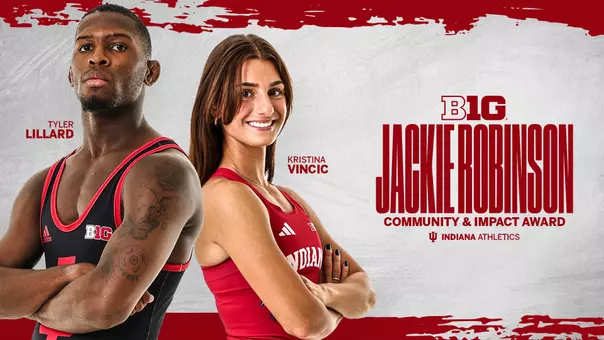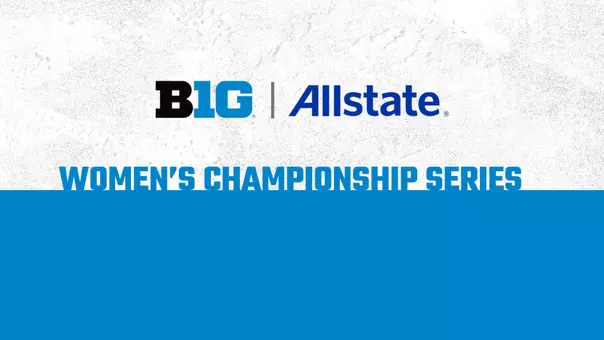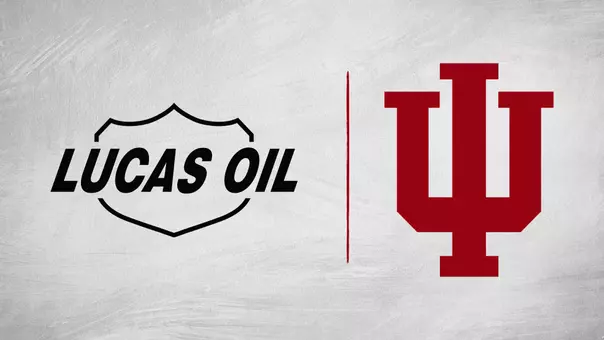Indiana University Athletics

"Indiana Rule" Another Example of IU Athletics' Vision, Leadership
12/17/2018 9:23:00 AM | General
BLOOMINGTON, Ind. – Athletic Director Fred Glass has sent a clear message – when it comes to sexual assault, Indiana University has zero tolerance.
Specifically, the Hoosiers will not accept any incoming student-athlete, whether it's a transfer or a recruit from the high school, junior college or prep school ranks, or internationally, who has committed sexual assault.
The Hoosiers, unlike every other Big Ten school, back it up with a specific policy.
Called Indiana University Athletics Policy Disqualifying Prospective Student-Athletes With Records of Sexual Violence, it keeps the university proactive in addressing such situations.
It generated national buzz when it was implemented in the spring of 2017 with the approval of the Indiana University Bloomington Faculty Athletics Committee.
It still does.
"Frankly, I didn't think it was that dramatic," Glass says. "It seemed pretty non-controversial. It's a statement of our values, but it's been a big deal. Nobody else has followed us. We're the only school in the Big Ten if not the country that has a policy like that."
Other schools continue talking about implementing a similar policy, but so far it's been just talk. IU continues setting a high standard, Glass says, because it reflects the university's commitment to create the best possible experience for student-athletes.
"Advocates in the area have advocated for the adoption of what's been called the Indiana Rule," he says. "I'm proud that we've been at the forefront of that.
"We didn't do it to be a pioneer. We did it because we felt it was the right thing to do. I think we're getting a reputation of being progressive as far as student health and welfare, first with the Student Bill of Rights, now with Sexual Assault."
It's yet another way IU sets itself apart from the rest of the Big Ten, and beyond.
"We had it approved," Glass says. "We discussed it with the university counsel office. We did all the hard work that needed to be done."
Hard work started with research.
"What got me started thinking about it was the policy the SEC has as a conference in regards to sexual assault," Glass says. "For a long time their policy has been that if you want to transfer in to an SEC school and you have a record of sexual assault, you can't play sports there."
The Big Ten considered adopting a similar policy but ultimately left it up to each institution to make its own determination if and how to do so.
Glass concluded that Indiana should do so, and he used the SEC policy as a model, then took it further.
"As I looked at the SEC's policy, I couldn't understand why it was limited to transfers. If you take as a value you won't take transfers (with a history of sexual assault), it should matter if you did something in high school. My view was that we should strengthen that policy in a dramatic way."
And so IU has.
"No one who has been adjudged administratively or criminally of sexual misconduct can come here and play sports," Glass says. "We take the definition from the university and that applies to domestic violence and rape. If you're found responsible for that, you can't come here."
As a former lawyer, Glass understands that being accused of sexual assault doesn't always mean being found guilty of sexual assault.
"We tried to build in some due process for the accused. We make it clear it's found guilty in a criminal proceeding or found adjudged responsible in an administrative proceeding, through a school process. It's not a rumor or accusation.
"We also require due diligence from our coaches. If something comes up, you've got to ask the question. You have to research it. If you don't look at it, you're going to be in big trouble."
In other words, coaches who do nothing when faced with a report of sexual assault of any kind, whether from recruits or current players, coaches and staff, will face serious consequences.
Silence, in this case, is absolutely not golden.
"Under the university sexual misconduct policy," Glass says, "if you're a responsible person, and that would certainly apply to head coaches and athletic directors and most of the people around the athletic department, and you're aware of somebody who works for you, that you suspect is a perpetrator or victim of sexual misconduct, then you have a duty to report that."
Specifically, the Hoosiers will not accept any incoming student-athlete, whether it's a transfer or a recruit from the high school, junior college or prep school ranks, or internationally, who has committed sexual assault.
The Hoosiers, unlike every other Big Ten school, back it up with a specific policy.
Called Indiana University Athletics Policy Disqualifying Prospective Student-Athletes With Records of Sexual Violence, it keeps the university proactive in addressing such situations.
It generated national buzz when it was implemented in the spring of 2017 with the approval of the Indiana University Bloomington Faculty Athletics Committee.
It still does.
"Frankly, I didn't think it was that dramatic," Glass says. "It seemed pretty non-controversial. It's a statement of our values, but it's been a big deal. Nobody else has followed us. We're the only school in the Big Ten if not the country that has a policy like that."
Other schools continue talking about implementing a similar policy, but so far it's been just talk. IU continues setting a high standard, Glass says, because it reflects the university's commitment to create the best possible experience for student-athletes.
"Advocates in the area have advocated for the adoption of what's been called the Indiana Rule," he says. "I'm proud that we've been at the forefront of that.
"We didn't do it to be a pioneer. We did it because we felt it was the right thing to do. I think we're getting a reputation of being progressive as far as student health and welfare, first with the Student Bill of Rights, now with Sexual Assault."
It's yet another way IU sets itself apart from the rest of the Big Ten, and beyond.
"We had it approved," Glass says. "We discussed it with the university counsel office. We did all the hard work that needed to be done."
Hard work started with research.
"What got me started thinking about it was the policy the SEC has as a conference in regards to sexual assault," Glass says. "For a long time their policy has been that if you want to transfer in to an SEC school and you have a record of sexual assault, you can't play sports there."
The Big Ten considered adopting a similar policy but ultimately left it up to each institution to make its own determination if and how to do so.
Glass concluded that Indiana should do so, and he used the SEC policy as a model, then took it further.
"As I looked at the SEC's policy, I couldn't understand why it was limited to transfers. If you take as a value you won't take transfers (with a history of sexual assault), it should matter if you did something in high school. My view was that we should strengthen that policy in a dramatic way."
And so IU has.
"No one who has been adjudged administratively or criminally of sexual misconduct can come here and play sports," Glass says. "We take the definition from the university and that applies to domestic violence and rape. If you're found responsible for that, you can't come here."
As a former lawyer, Glass understands that being accused of sexual assault doesn't always mean being found guilty of sexual assault.
"We tried to build in some due process for the accused. We make it clear it's found guilty in a criminal proceeding or found adjudged responsible in an administrative proceeding, through a school process. It's not a rumor or accusation.
"We also require due diligence from our coaches. If something comes up, you've got to ask the question. You have to research it. If you don't look at it, you're going to be in big trouble."
In other words, coaches who do nothing when faced with a report of sexual assault of any kind, whether from recruits or current players, coaches and staff, will face serious consequences.
Silence, in this case, is absolutely not golden.
"Under the university sexual misconduct policy," Glass says, "if you're a responsible person, and that would certainly apply to head coaches and athletic directors and most of the people around the athletic department, and you're aware of somebody who works for you, that you suspect is a perpetrator or victim of sexual misconduct, then you have a duty to report that."
IUBB Postgame Press Conference
Sunday, February 15
IUBB Pregame Press Conference
Friday, February 13
IUWBB Postgame at USC
Friday, February 13
Darian DeVries Postgame Press Conference
Tuesday, February 10




